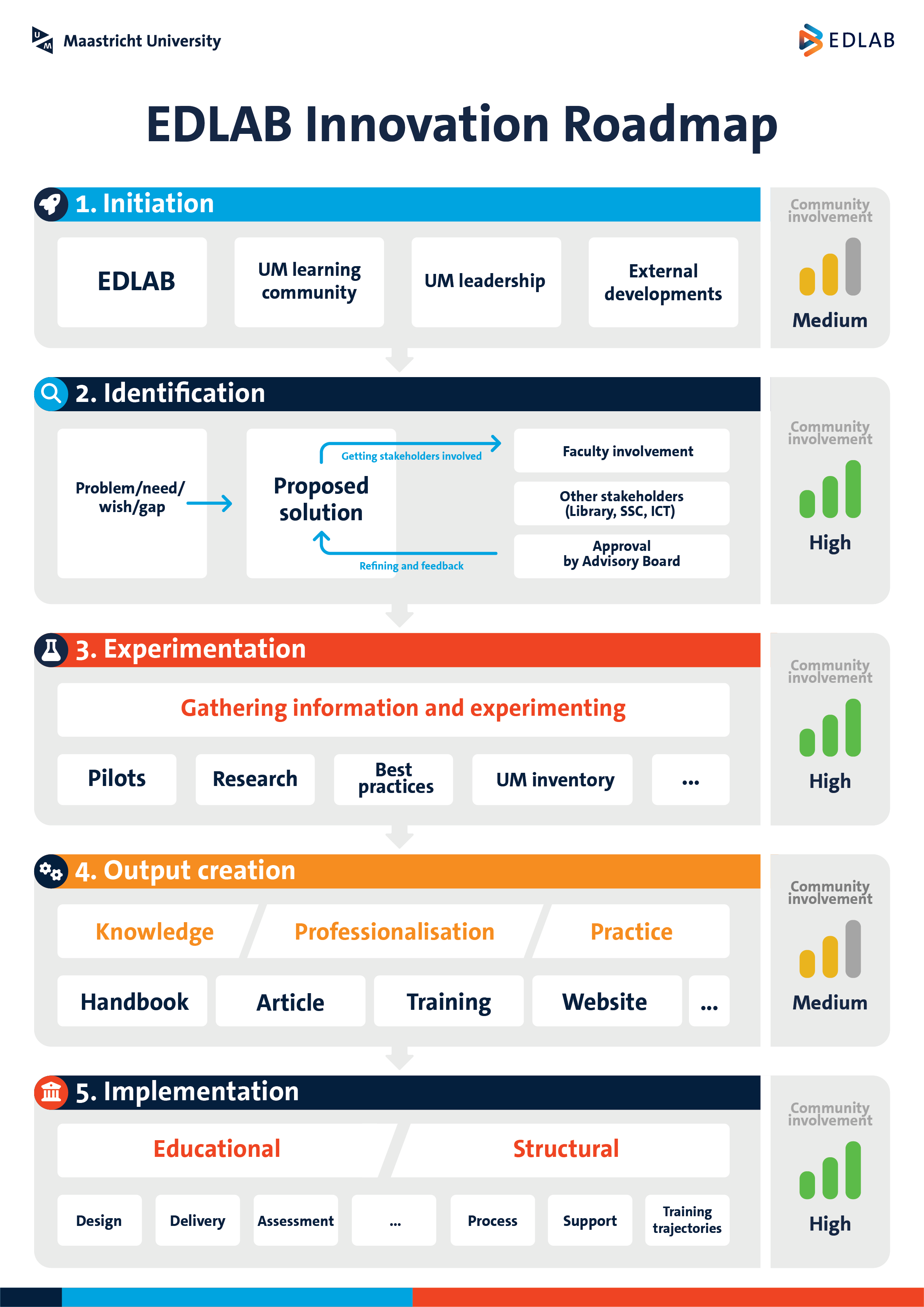The EDLAB way of working
The EDLAB approach to stimulate and drive the Teaching and Learning community at Maastricht University in the continuous development of our educational model cannot be encapsulated in a rigid systematic plan and fixed format. However, looking back on recent years and current projects, we can define some generic phases.
Engaging in dialogue
While there is diversity within these phases in terms of methods and communication styles, upholding the conversation with stakeholders is the absolute common thread. Engaging in dialogue can take various forms, aligning with the UM structure and culture characterised by a high degree of decentralised organisation, emphasising the importance of involving all stakeholders early and consistently in all activities.
Initiation
Our projects and activities typically originate from:
- our own insights and knowledge,
- requests from UM leadership to address strategic issues,
- emerging questions from the UM learning community requiring further analysis/exploration, or
- in response to external developments.
Our educational model, problem-based learning, is the guiding principle in this regard. With every question we tackle, the central focus is on how we can contribute to the continuous development or innovation of PBL.
The exploration involves conversations with experts (internal and external to UM), conducting a concise needs assessment, gauging the organisational 'temperature' around a specific theme, reading literature, and exchanging thoughts with our advisory board, sounding board, and teams for teaching professionals, DTIE, and honours teams. Based on these insights, decisions are made, often collaboratively with stakeholders, to initiate the next phase.
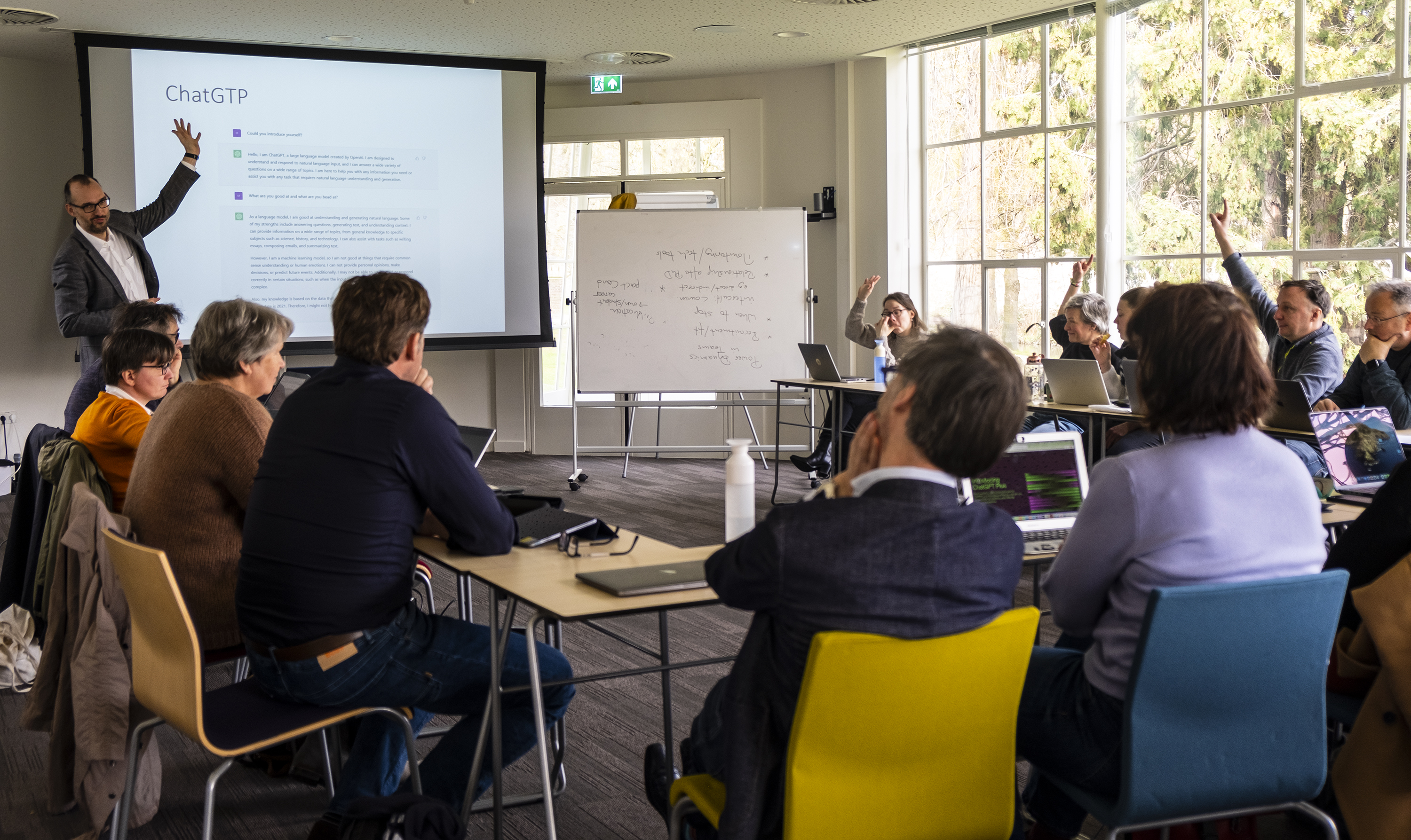
Example 1
In early 2023, the issue of student entitlement was prominent in honours programmes. After several discussions, expert consultations, literature reviews, and an exchange with the SSC, it was concluded that the topic did not warrant further exploration under the coordination of EDLAB.
Example 2
In November 2022, the introduction of ChatGPT had significant implications for education. EDLAB promptly initiated research and innovation projects, engaged student teams, organised a range of activities and workshops for knowledge exchange, and joined the team responsible for developing policy around using language models. A Community of Practice supports this, where insights from all projects find their way to the entire community. These examples illustrate that EDLAB takes time for thorough exploration in the initial phase but remains adaptable and quick to respond to developments with profound consequences for our education.
Identification and experimentation
From the initiation phase emerges a stage of consolidating insights, designing, building, and developing the cadres of project or activity. In this identification phase, a translation is made from the accumulated input towards a proposed solution and activities, e.g. pilots, research, best practices, inventories, etc.
EDLAB takes the lead in finetuning the exact needs, articulating questions and devising the right scope while involving the academic (e.g. teaching staff, researchers), support (e.g. education offices, policy officers) and service (UM Library, student services) community at UM.
After gaining commitment from important stakeholders, EDLAB coordinates the experimentation activities taking place within a controlled setting within the faculties, EDLAB and service centres.
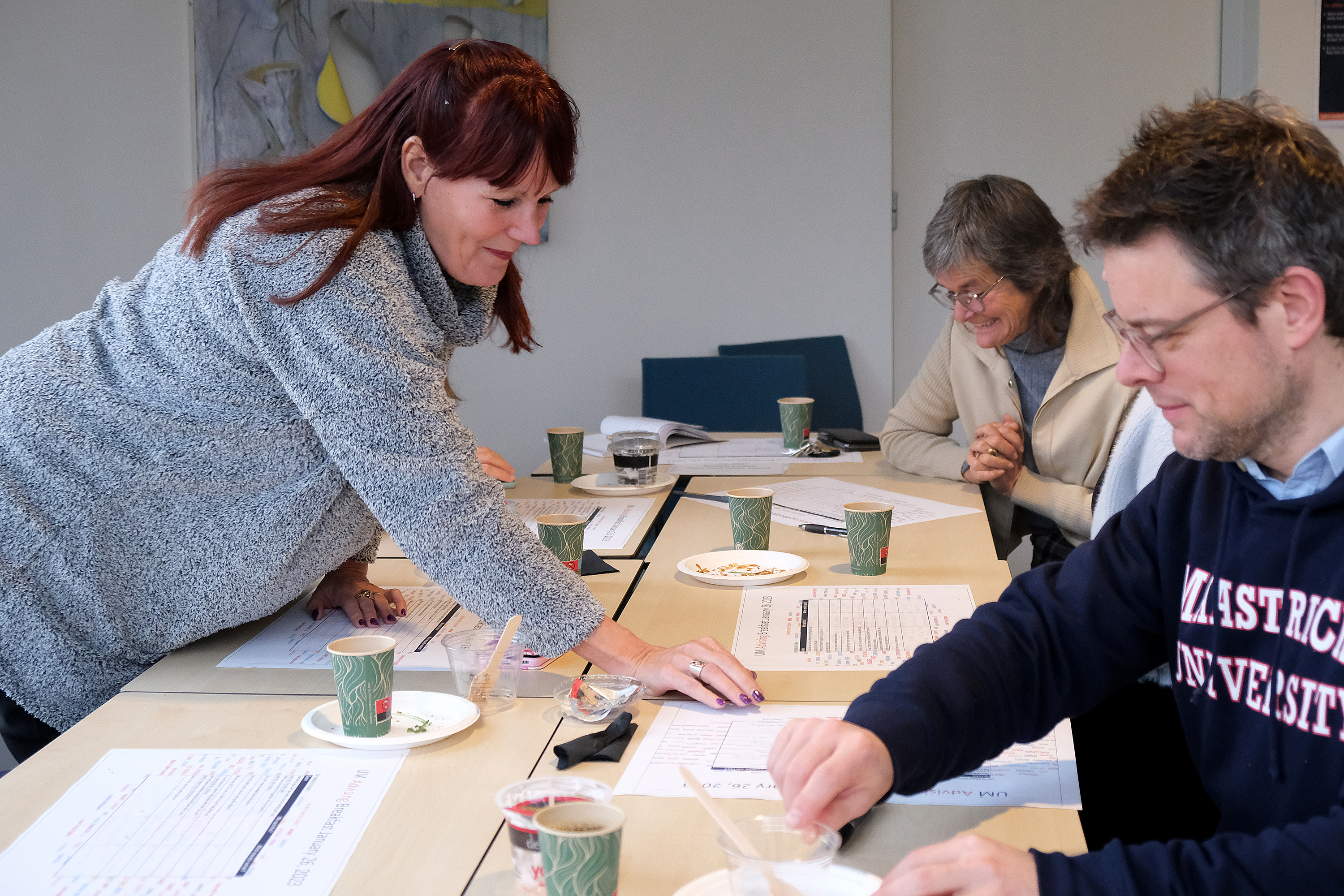
Example 3
In late 2021, a project team coordinated by EDLAB and SSC initiated the development of a UM vision for student advising/academic guidance. The approach involved a lengthy initial phase of collecting opinions, personal ambitions, and visions, allowing time for diverse terms and concepts. By early 2023, the coordinating team translated all input into an initial vision. The subsequent alignment of this version also took ample time, resulting in an embraced vision and a group of colleagues engaged in constructive dialogue based on shared ambition, resulting in a finalised and wholeheartedly embraced proposal by the Education Platform in May 2024. This example emphasises that taking time on complex topics, known for diverse opinions and role perceptions, contributes to a well-supported proposal. The positive and personal approach, adopting appreciative inquiry, enhances support and engagement.
From experimentation to output creation
Moving from the experimentation phase to output creation, we focus on knowledge, dissemination and practice in many different formats (e.g. training) and tangible outcomes (e.g. handbook). Again, this is a joint venture with our community; the value lies in the collaboration with colleagues from faculties and service centres.
A sound communication strategy is crucial, as EDLAB ideally aims to reach the entire community with its activities and the knowledge generated.
Implementation
Every project or activity reaches a phase of completion. This is the moment to discuss sustainability, often planned from the early stages. Sustainability can occur under temporary coordination or through self-organising teams and networks where faculty colleagues maintain connections.
It furthermore can impact educational design, delivery and assessment and/or realise structural changes (e.g. support, process, training trajectories) to facilitate the durable impact of innovation. In addition, concrete products and services become part of EDLAB's offerings.
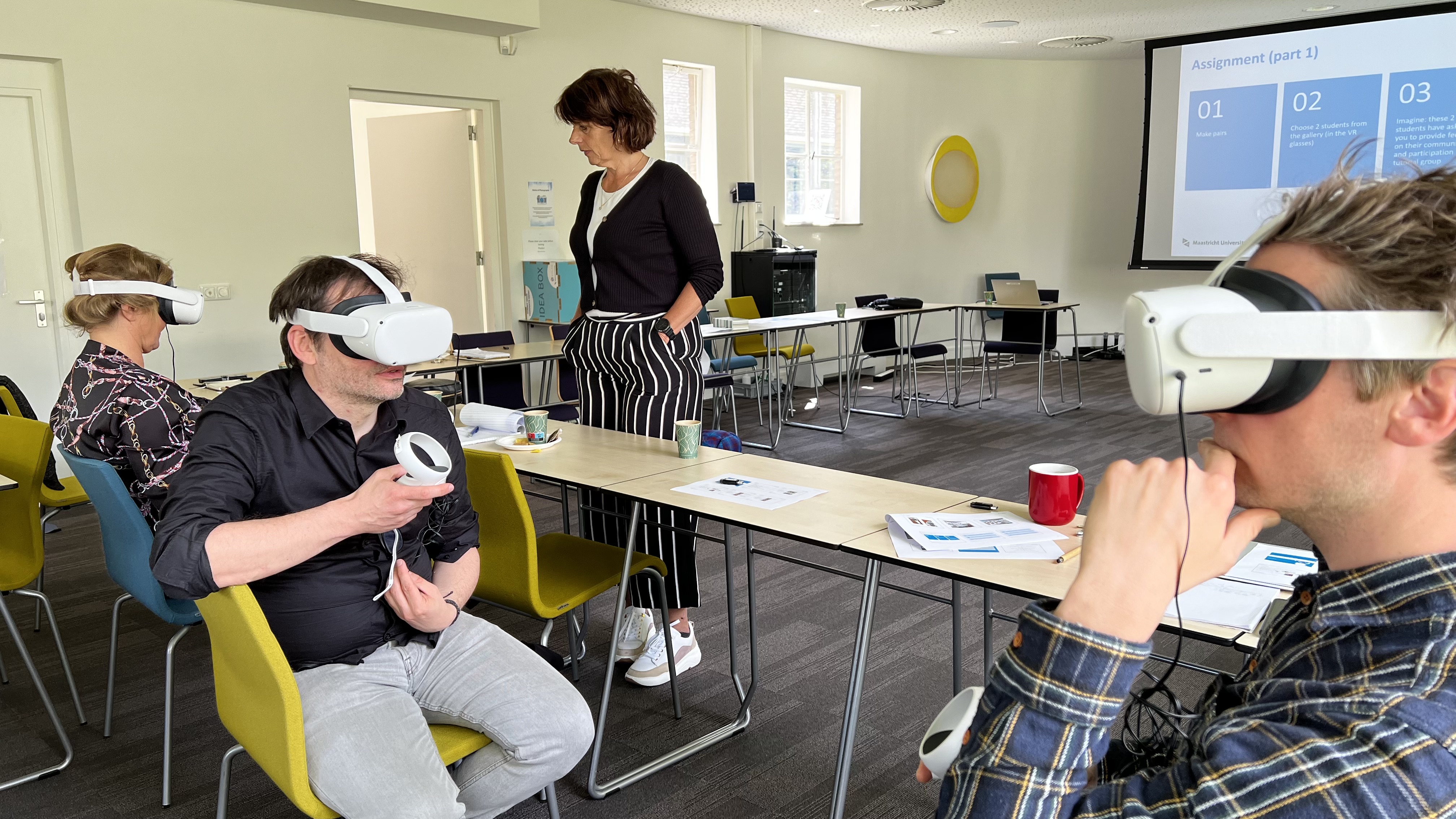
Example 4
The VR-enhanced PBL project, initiated in the summer of 2022, was concluded in the spring of 2024. Coordinators from various VR/XR labs will take the lead in continuing coordination through an overarching UM VR network of which EDLAB is also part. In addition, the project report was shared with our whole community and external networks, including technical and didactical guidelines that were transformed into practical manuals for teaching staff.
Example 5
With the presentation of the vision on assessment in 2018/2019, six (supporting) projects were defined as necessary to give faculties during their adoption and implementation of the vision; EDLAB now manages the further development of these products, such as a Canvas module, manuals, glossary, and workshops. The working group responsible for the vision still meets twice a year for the exchange of best practices and new insights, operating independently with EDLAB providing space and catering.
Evaluation and further development
By staying connected with the community and actively involving representatives in each phase of a project/activity, EDLAB maintains awareness of community needs. This allows for continuous adjustment, aligning with the PDCA cycle for the ongoing development of our education and underlying educational vision.
Resistance, adaptability, and team dynamics
Innovation and change management in a dynamic institution like UM pose challenges. Recognising organisational challenges, particularly resistance, EDLAB addresses each theme by questioning: 'What problem/wish/necessity do we identify?' and 'How does this theme contribute to improving the quality of education?' Topics start with exploration and relevance for UM; involving faculty experts open to contributing. The translation into an EDLAB innovation project or activity is thus broadly substantiated from the beginning.
Organisational resistance during innovation and change projects is almost a given, offering opportunities for broad consensus. Handling resistance is implicitly part of EDLAB's working method. EDLAB's central position allows it to gather internal stakeholders for creative decision-making processes. Early decisions are made regarding the viability of certain themes, and the approach enables EDLAB to decide whether a specific topic is worth pursuing during the exploratory/experimental phase.
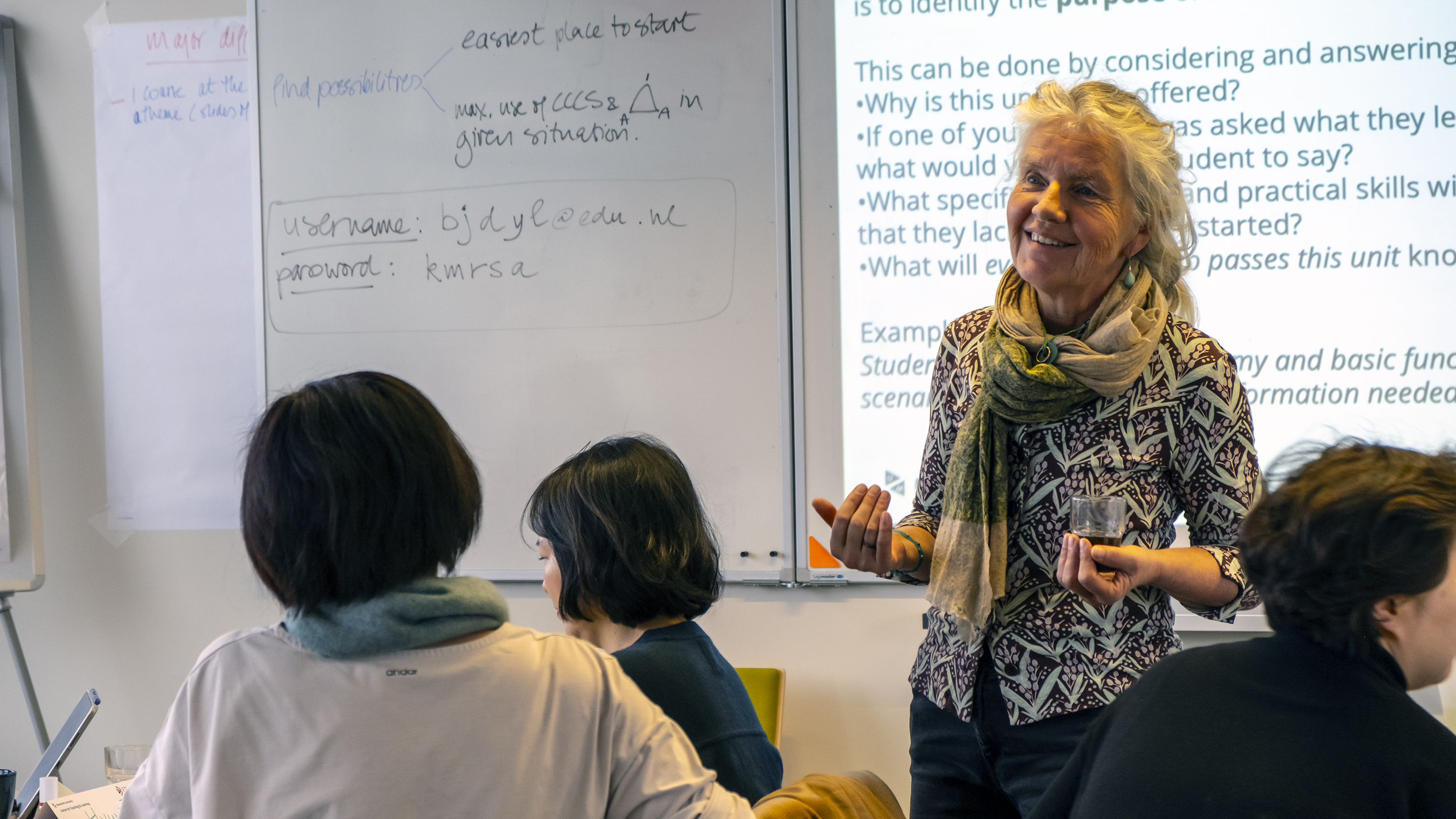
Example 6
During COVID, the shift to online education prompted a reflection on hybrid models. However, after assessing its compatibility with problem-based learning, EDLAB concluded that the hybrid model did not align with PBL, aiding faculties to make more nuanced choices regarding online or onsite education. EDLAB relies on various advisory boards for internal coordination. Members of these boards serve as important liaisons to faculties and offer relevant networks. Despite this approach, the degree, timing, and level of resistance remain somewhat unpredictable. EDLAB, even in the implementation phase, works to identify underlying reasons for resistance, rationalise discussions, and phase the implementation process if necessary.
The EDLAB team is diverse in terms of education, nationality, age, work experience, thinking styles, and roles, providing a broad perspective. Many EDLAB employees are actively involved in teaching or educational research, maintaining a connection to practice and adapting swiftly to new developments. This diverse composition enables EDLAB to address topics from various backgrounds and angles and allows us to continue building and expanding our networks within and outside UM. Whenever possible, students are involved through student assistantships, hiring student employees, and hosting interns. The team is cohesive, allowing for trust and delegation. This dynamic fosters organic cross-pollination between colleagues and EDLAB domains when addressing new themes.
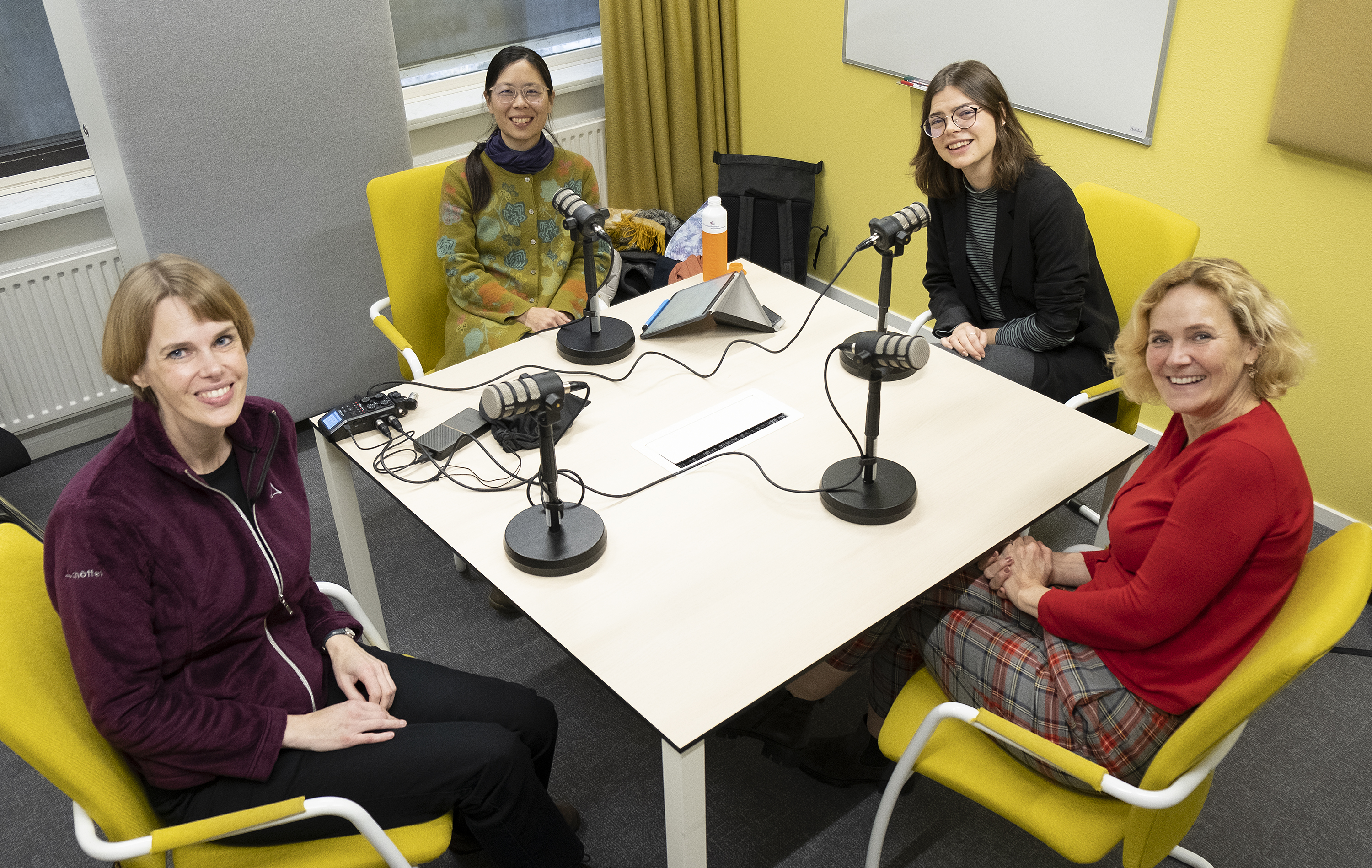
Example 7
The creation of EDLAB's new podcast 'Alice in Eduland' stemmed from the initial thought of having an EDLAB podcast to inform and engage our community in yet another way. A group of employees, including an intern, took on the challenge. Despite intense time pressure, the podcast was successfully produced and launched. Reflecting on the process and content, the team is now ready to continue the podcast series.
EDLAB Innovation Roadmap
In the following roadmap, EDLAB visualises its way of working and underlying principles. EDLAB stays connected with its stakeholders to refine and adapt its approach based on specific issues, target audiences, or partners. EDLAB remains in a constant learning mode to facilitate the UM community on teaching and learning and shape the ongoing development of our education model.
